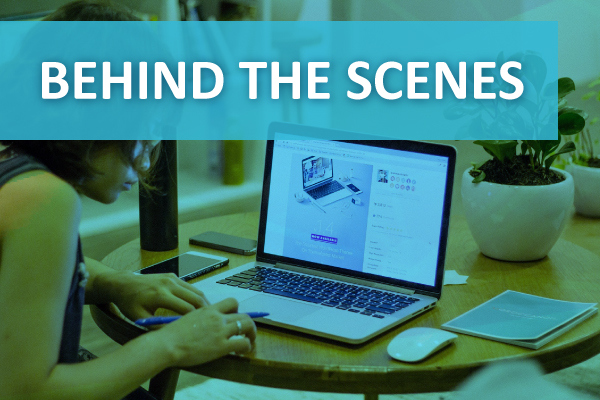
Behind the scenes - Regulatory advice and support
During the current Coronavirus (COVID-19) pandemic, the need to provide robust, high-quality regulatory advice is essential to ensure high levels of safety are maintained whilst supporting rapid innovation. As the situation is rapidly evolving, the regulatory framework set out by the MHRA (Medicines and Healthcare products Regulatory Agency), is constantly under review to adapt to the urgent requirements of the NHS. This relates to medical devices, In-vitro diagnostic (IVD) devices and personal protective equipment (PPE). We go behind the scenes to review the support and advice currently being provided by the SHIL team.
____________________________
Medical devices and diagnostics play a key role in delivering new products that benefit the NHS, the economy and above all, patients. They play a crucial role in diagnosing, preventing, monitoring and treating illness, and overcoming disabilities.
To keep up with advances in science and technology, changes to the regulatory landscape were announced long before the current Coronavirus (COVID-19) pandemic took hold.
Planned changes
Two new European regulations were published in May 2017 - Medical Devices Regulation (MDR) EU 2017/745 with a three year transition period and In-vitro Diagnostic Medical Devices Regulation (IVDR) EU 2017/746) with a five year transition period replace the three existing directives (Directive 90/385/EEC Active Implantable Medical Devices (AIMD), Directive 93/42/EEC Medical Devices (MDD), and Directive 98/79/EC In-Vitro Diagnostics (IVD)) in the years up to May 2022.
To support these developments a new Regulatory Advice Service was launched by SHIL earlier this year, to support NHS Scotland (plus companies or universities working in partnership with NHS Scotland) navigate significant changes in medical device regulation.
Postponement
Given the current pandemic; the pressures on national health authorities and manufacturers of medical devices to provide medical devices needed to fight COVID-19 are paramount. Social distancing implemented to reduce the spread of the virus means that notified bodies are unable to do on-site compliance audits. To reduce the risk of disruption of supply of critical devices, the European Parliament has postponed the implementation of EU 2017/745 (Medical Device Regulation) for twelve months with the new implementation date of May 2021. The date of implementation of the In-Vitro Diagnostic Medical Device Regulation is not affected will be implemented in May 2022, as planned.
In addition to postponement of new regulations, the MHRA have introduced temporary regulatory flexibility for the introduction of some specific, urgently required devices. This is reviewed and updated on a regular basis.
With new ideas and innovations being submitted through the SHIL COVID-19 innovation call, plus ongoing work with colleagues across NHS Scotland and Scottish Government; SHIL continue to provide the most up to date regulatory advice. Of significant note is:
Diversification
Coronavirus (COVID-19) has resulted in a sharp increase in the demand for medical devices such as ventilators, personnel protective equipment (PPE) and hand sanitiser. Many businesses have diversified and used their skills, resources and manufacturing capability to support Government calls for industry support.
As a result, in some very specific cases, an exemption to the medical device regulations may be granted. This will be determined on a case by case basis by making an application to MHRA. Evidence that the device performs as intended and meets applicable standards of safety, quality and efficacy is required; and that the supply chain is safe and secure.
Relaxation of the regulatory regime
In the UK, responsibility for regulatory approval lies with Medicines & Healthcare products Regulatory Agency (MHRA); with guidance issued on flexible approaches to regulation during the COVID-19 outbreak. These regulatory flexibilities are:
- temporary and will be kept under review, except where regulatory extensions have been stated
- offered to provide flexibility in exceptional circumstances
- effective immediately
Additionally, fast-track approval of medical devices during COVID-19 has also been set out specifically:
- Approval for ventilators, PPE and COVID-19 testing kits
- Exemptions for all other kind of medical device
Remain compliant
The important message is that whilst innovating at speed within a healthcare setting and with evolving scientific evidence, compliance with the relevant regulatory frameworks is essential to ensure high levels of safety are maintained.
Elaine Gemmell, Head of Strategic Development at SHIL, has more than 15 years’ experience in medical device development, and stresses the importance of seeking specialist advice and support:
“Medical device regulation is a specialist area and it is important NHS Scotland, in addition to academia and industry, have access to high-quality advice and support. Although there is currently a number of exceptions and exemptions from the regulatory framework governing certain products, it is important for those manufacturing medical devices to be fully compliant with safety measures which still need to be met.
“The regulations may continue to be adapted as the Coronavirus (COVID-19) pandemic persists, therefore it is essential to seek the appropriate and up to date advice and support. These are unprecedented times, and whilst supporting innovation, high levels of safety must be maintained, and that is why the regulatory frameworks that exist in the UK are so important.”
SHIL operates an ISO 13485:2016 quality management system harmonised to the Medical Device Directive. Consultancy and advice is available to all NHS Health Boards, plus companies or universities working in partnership with NHS Scotland to develop medical devices, to ensure awareness and compliance with legal responsibilities, and to support the design and development of products under an accredited regulatory framework.
More information
- Contact [email protected] for advice and support
- Information on changes to medical device regulation
- MHRA guidance on COVID-19
- Other professional services offered by SHIL
- SHIL COVID-19 innovation call
Chat